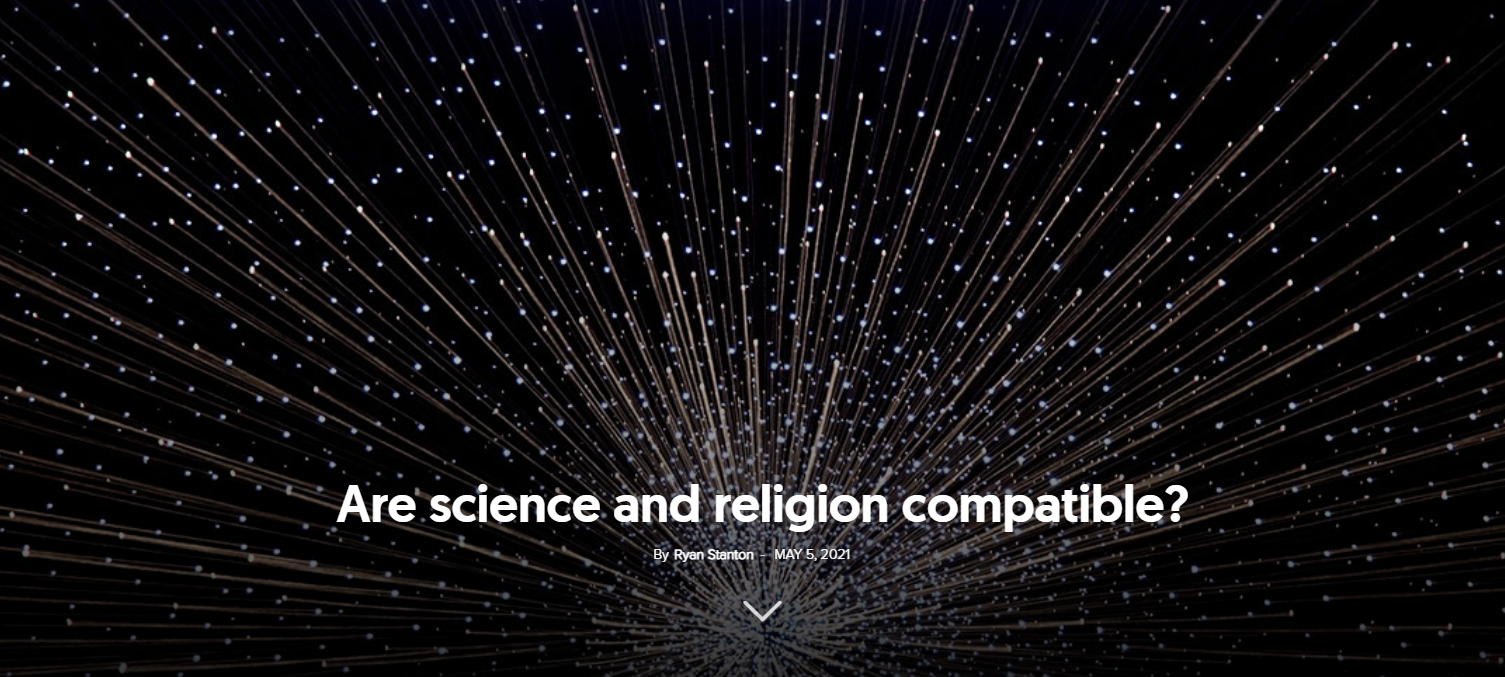In 2013, famous atheist author Richard Dawkins was voted the world’s leading thinker in a global poll of 10,000 people in 100 countries. Not a single thinker from the fields of religion or ethics made the list. It’s worth saying again: “Think forward!”
At first glance, the survey by the British magazine Prospect[1] is significant. Dawkins is joined by other influential figures: Afghan politician and former presidential candidate Dr Ashraf Ghani Ahmadzai is second, another atheist, psychologist Steven Pinker, is third, Iraqi politician Ali Allawi is fourth, and American economist Paul Krugman rounds off the top five.
Some were disappointed by the lack of theologians, ethicists, environmentalists, and the relatively small number of women, the first of whom is only 15th. While Prospect wrote that the results were “curious,” The Guardian balanced the enthusiasm of the winners’ fans by saying that “any list, even one garnering 10,000 votes from over 100 countries before being decided on by a panel of 10, is bound to be subjective and somewhat partial.”
A closer look reveals that two criteria were used to decide the nominees: (1) their influence over the past twelve months, and (2) the significance of their contribution to the big questions of the year. Of course, one can ask: “How is influence measured?” Looking back, one can also ask: “What were the big questions of the year?”; “What contribution did the elected people make?”
Our website and magazine of Christian analysis and opinion will focus on the influence and actions of the figure at the top of the list, the atheist Richard Dawkins.
How is influence measured these days?
Branding consultant Bernadette Jiwa gives an eloquent example[2] by contrasting a volunteer in Africa with an American celebrity being hounded by paparazzi. The star in question is Paris Hilton, the great-granddaughter of the founder of the Hilton hotel chain. Critics say she represents the current model of celebrity—the celebutant[3]—where money, inheritance and fame, coupled with a scandalous life, propel you to the top of the world’s celebrity charts. According to the Klout algorithm—where influence = the ability to inspire action—Paris Hilton scores 83 out of 100. Of course, this is not just from online fans, but from the millions of people who follow her work as a model, actress, and fashion, jewellery, and fragrance designer.
At the other end of the spectrum, Lucy Buck[4] is the founding director of the Child’s i Foundation. She has worked for major British television channels but spent six months volunteering in Kampala, the capital of Uganda. Since then, her life has been divided between working on the set of Big Brother and other reality shows and the real struggle on the African continent, where the challenge is to save newborn babies abandoned in filthy toilets. After a baby boy called Abraham, just one month old, died in this way, Lucy decided to end her TV career and set up the Child’s i Foundation. She’s very active on social media and is now promoting another reality show. But her score is only…10. The difference in score between those in the spotlight and those behind it is clear: 83 to 10.
Influence is a subjective and volatile thing in the social media age, especially for someone with 3 million X (formerly Twitter) followers like the famous biology professor Richard Dawkins. It’s well known that a horror story or a tidbit of gossip, an irony or a cheap shot will get more ratings than a cultural programme or a ministerial decision. Unfortunately, Gangnam Style was more viral than cogito ergo sum. In a match, the loudest comments from the players or the loudest shouts from the gallery seem to win the day. But it is the points on the pitch that count. “Up until now, we’ve thought a lot about influence in terms of how big someone’s microphone is,” says NYU business professor Sinan Aral, as quoted by TechCrunch.
“A more important question is, how much does someone’s influence, or their messages, or the things they have to say to us, change our behaviour?”
Let’s move on from decibels, likes, posts, and other metrics. We’ll look at practical, concrete, and measurable things. Aral’s perspective, as set out in the prestigious journal Science, is that influence is not about media fame, but about contributing to a campaign and influencing people to make a concrete decision. In the end, we are led to the big questions of the year, to see if and how the world has been changed by the great thinkers of the year.
Big questions, zero answers
Any survey[5] of global issues in 2012 (the field of interest of the poll in question) brings up new or chronic problems such as: human rights and revolutions in the Arab world, the world’s economic situation (especially Europe’s) and rising public debt, environmental problems, pollution and water scarcity, nuclear energy management, the explosion of online socialisation (and the time wasted there[6]), the ageing of society, huge income gaps between social classes, the lack of global leadership and cooperation, and so on.
It’s not hard to see where most of the thinkers in Prospect’s top five have their expertise. However, we cannot say the same about the man at the top of the list: Richard Dawkins, former Oxford professor of biology and vocal atheist. Why is that? Because he has a hobbyhorse—religion, not the real and fundamental problems of this world.
“He uses this platform to attack his old foe, religion,” says Prospect itself, and he is an intellectual who promotes “science and rationalism.” For Richard Dawkins, there is “no rhyme, no reason, no justice” in the universe of blind physical forces. Fighting against religion, Dawkins has attacked everything that can be attacked about Christianity: the importance of religious education, the immorality of abortion, the role of religion in society, the authenticity of the Bible, etc. His thesis is to show that life and the universe can be explained by secular science without recourse to supernatural explanations; the corollary is the abolition of the idea of God, as he says in the title of his book The God Delusion.[7]
Among the rants that have made him famous on social media, Dawkins has claimed that the damage done to a child by sexual abuse is less than the psychological damage done to a child raised in religious faith. On another occasion (13 March 2013), he also waded into the abortion debate. To those who have claimed the immorality of abortion on the grounds that a foetus feels pain, he said that if that is how being human is determined, then “any foetus is less human than an adult pig.” His views did not go unheeded. “Such vapid reductionism would never be undertaken, of course, by anyone with genuine intellectual integrity. The idea that this simplification would be assayed by the world’s leading intellectual is a mockery—like the list that enshrines him,” concludes David Wolpe, one of America’s best-known and most influential rabbis, in an article published by the Huffington Post.
None of Dawkins’ demonstrations have gone unnoticed. On the contrary, they have provoked fierce reactions. It even became comical. His name appeared on the list of a betting shop as a potential candidate for the post left vacant by Pope Benedict XVI—a parody, of course. But those who imagined him as the Pope had no trouble also seeing him as a character in cartoons such as The Simpsons and South Park.
A viable explanation for Dawkins’s position among the most famous intellectuals could be found in Mario Vargas Llosa’s statement about the “civilisation of the spectacle”: “Intellectuals are of interest only if they play the fashion game and become clowns,” writes the Nobel Prize-winning author. And if today’s forums are full of brave thinkers, sometimes very bravely hiding under a pseudonym (often several), Dawkins has something special. He argues with everyone, by name. We’re dealing with an intelligent, fiery, and ironic character who has been blown up by the media. Because, as one writer for the Christian Post put it, this top is the list of the world’s greatest thinkers…that you know of.
And if his only target is God, then…there’s nothing new under the sun. For the author of the best-selling book The God Delusion, one Bible passage is painfully evocative: “The fool says in his heart, ‘there is no God'” (Psalm 14:1). For Dawkins, of course, the value of the Bible is zero, but his sarcasm carries him so far as to claim that the Bible really must be read, for two reasons: its literary value (the KJV is a staple of the English language), and so that people can see for themselves that the Bible is “not a guide to morality.”
Unfortunately for him and his crusaders, Dawkins has also been contradicted by a prominent atheist,[8] the physicist Peter Higgs,[9] who believes that religion and science are not necessarily incompatible. “What Dawkins does too often is to concentrate his attack on fundamentalists. But there are many believers who are just not fundamentalists,” Higgs told the Spanish publication El Mundo. What’s more, Higgs believes that “Dawkins in a way is almost a fundamentalist himself, of another kind.”
In short, the world’s most important thinker of 2013 promotes ideas such as: 1) atheists can be happy, well-adjusted, morally and intellectually fulfilled; 2) natural selection and similar scientific theories are superior to the “God hypothesis”—the illusion of intelligent design—in explaining the living world and the cosmos; 3) children should not be labelled by their parents’ religion, avoiding terms like “Catholic child” or “Muslim child”; and 4) atheists should be proud, not apologetic, because atheism is evidence of a healthy and independent mind.
They think, so they cause trouble
Indeed, thinkers have always caused trouble for both the Church and the secular world. Inquisitions, dictatorships, and revolutions have all seen intellectuals as dangerous characters who ask uncomfortable questions. The most unfortunate solution has been to silence them, either by sending them to prison or to their graves. But at the opposite pole, “there is a danger,” writes Anthony C. Grayling, professor of philosophy at the University of London, “in the fact that people who are publicly salient as a result of major contributions in some special field—in science or literature, say—come to be regarded as oracles on every other subject under the sun.”
The danger, the article continues, is that the person in question sees everything through one set of lenses, their own, while the public should demand an integrated perspective. This idea is echoed by the same David Wolpe, who believes that “Dawkins on biology is an elegant, lucid and even enchanting explicator of science [while] Dawkins on religion is historically uninformed, outrageously partisan and morally obtuse.”
One interpretation of Auguste Rodin’s “The Thinker” is that it shows the artist meditating on his work. However, two other interpretations are strictly spiritual: “The Thinker” could represent Dante contemplating the characters of the Inferno, or the patriarch Adam contemplating the evil he has brought upon humanity through his sin. Whatever the perspective from which he is viewed, Rodin’s “Thinker” does not have the appeal of someone who would offer a concrete solution to the problems of ordinary mortals.
Drawing up a list of people who have had a real impact on the world, Grayling believes that three things are required of them: intelligence, the ability to speak out, and commitment. Well, it would seem that Dawkins only has the first two. Unfortunately, Dawkins is nothing more than an Athenian square-talker who wants to eliminate belief in God. He wouldn’t be the first. If this is the alternative, “if Dawkins is indeed our best, the life of the mind is in a precarious state,” Rabbi Wolpe concludes.
Speaking of the wise atheists and non-atheists of the Greek-Roman world of his day, the apostle Paul, in his letter to the Romans, offers perhaps the most up-to-date diagnosis of today’s world and godless people: “…their thinking became futile and their foolish hearts were darkened. Although they claimed to be wise, they became fools.” Furthermore, their way of life is one in which morality has fallen. Finally, to top it all off, “…although they know God’s righteous decree that those who do such things deserve death, they not only continue to do these very things but also approve of those who practise them” (Romans 1:21-22).
And if Richard Dawkins and others like him get to the top of the list by criticising religion, the church, and God, then they ought to at least make sure that this is what true religion, true church, and true God look like. Otherwise, they may be criticising a mere caricature that they can easily dismiss, while the truth is more beautiful and further away—a great deal of thought away.
“Man is only a reed, the weakest in nature, but he is a thinking reed”. Blaise Pascal




















